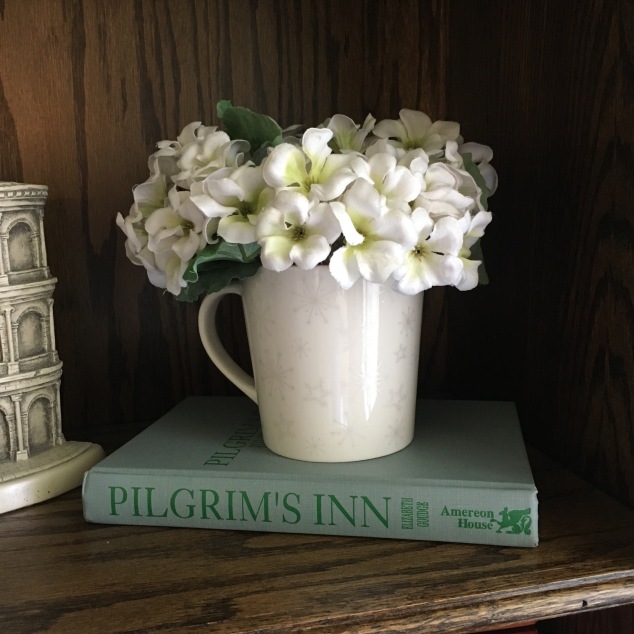In a word: Refreshing

I didn’t love everything about this book. I’ll start with that, because I want your last thoughts of this book to be the good ones.
- Character-driven. This is not, in itself, a bad thing. But it does mean that no matter how much I enjoy a book while I’m reading it, I have to make myself keep picking it up to read all the way to the end–especially if I’m reading a more fast-paced book at the same time.
- Mystical qualities of settings and symbols. Again, this is not always a deal-breaker, but in this case it did not enhance the story for me.
- Precocious child characters. I’m realizing this is a pretty constant literary pet peeve of mine. And the little five year old girl, Josephine, was nicknamed Jose´, which I just couldn’t get over.
Despite these three tiny complaints (and all matters of preference, not legitimate criticism), I am glad that I read this book, and I’ll probably read the other two in the series. First of all, the writing was delightful, as you already know from the commonplace post. I actually kept a stack of sticky notes in the front cover of the book because I ended up wanting to mark a passage almost every time I picked up the book (and it was a borrowed copy, so I couldn’t make pencil marks or fold down corners!).
Other than the aforementioned precocious twins, the characters were likable and often surprisingly complex. My favorite character was Nadine, because her theme was one that is crucial in real life but that basically never shows up in books or movies: It is possible to talk back to your feelings, do the right thing even if you don’t want to, and still find happily ever after.
It seems like a truth universally acknowledged by every storyteller that once you fall in love with someone (this can happen in mere seconds), then that person has a claim to your heart that can never be revoked or overruled. It doesn’t matter if twenty years go by, if one or both of you marry other people, if you discover that the other person is actually an ogre, or if you have otherwise incompatible values and lifestyles.
It’s very important to my personal happiness that this “truth” is not actually true, and so I found Nadine’s story particularly inspiring. She was in love with someone who was not her husband. In any other story, this would have meant the end of her marriage. But, no! Nadine discovered that feelings can be reasoned with, and she turns her back on the affair, releases her lover to find happiness elsewhere, and ultimately, she finds contentment and peace in duty and faithfulness. Similarly, she thinks of herself as ill-suited to motherhood. And, yes, she does hire some good help. But she also learns to embrace her family and her home, and to find joy in living the life that she has been given.
You are not a slave to your feelings.
You are not limited by your natural temperament and weaknesses.
People can change and grow.
Joy and fulfillment can be found on the other side of duty and commitment.
These are themes worth celebrating!

This is the second review I’ve read in a week for this book. I think it means I should check it out myself. Love that Nadine does the right thing instead of the predictable choice that seems to dominate more modern literature.
LikeLike
Duh, I just realized that THIS is where I read the other review. No matter. The more I read about this book, the more I want to read it for myself!
LikeLike
You should try it! Let us know what you think!
LikeLike